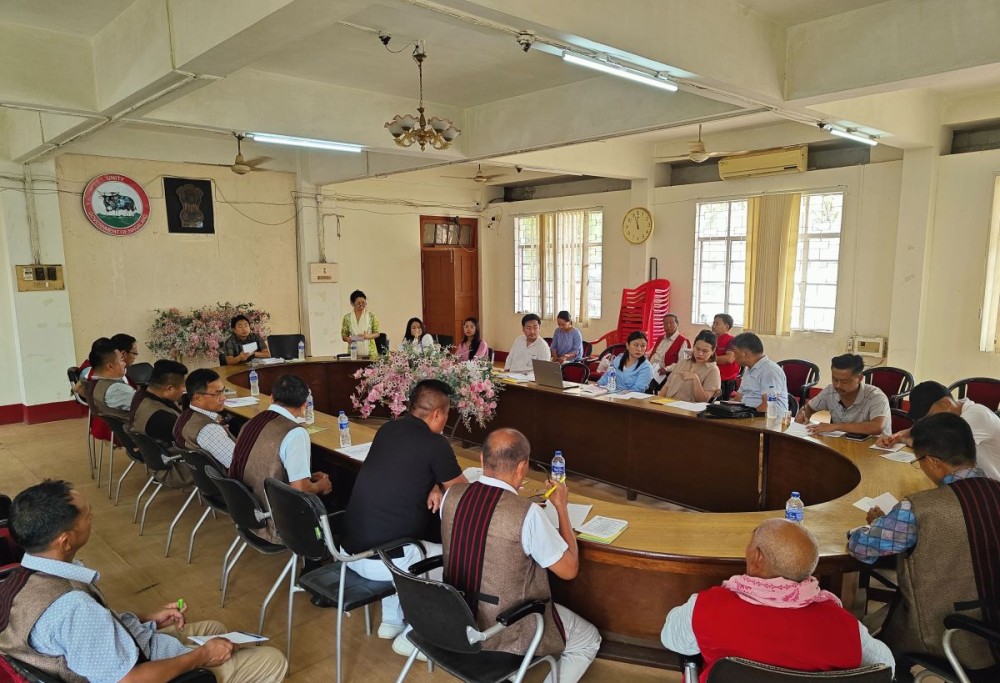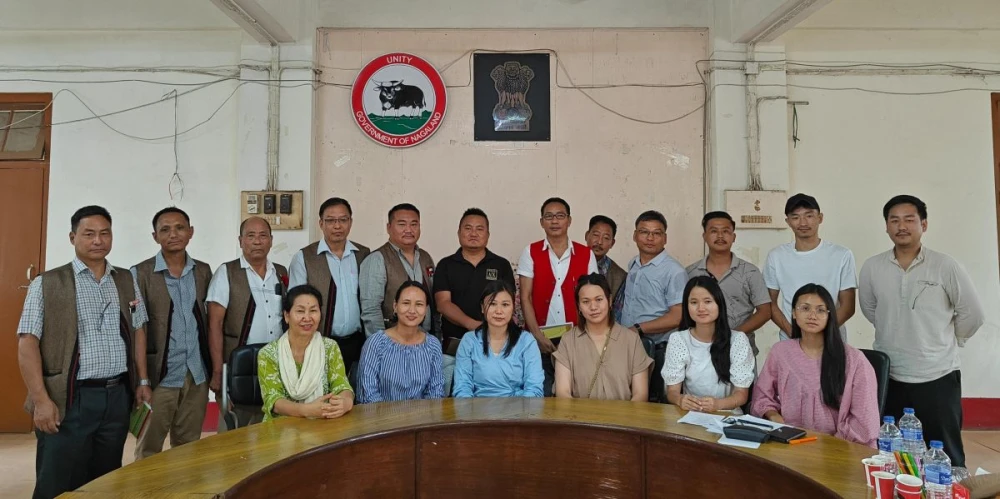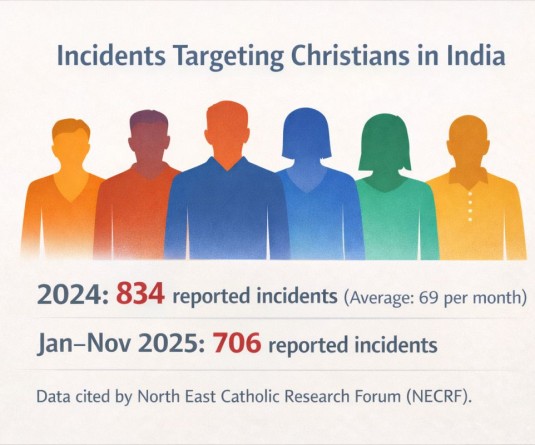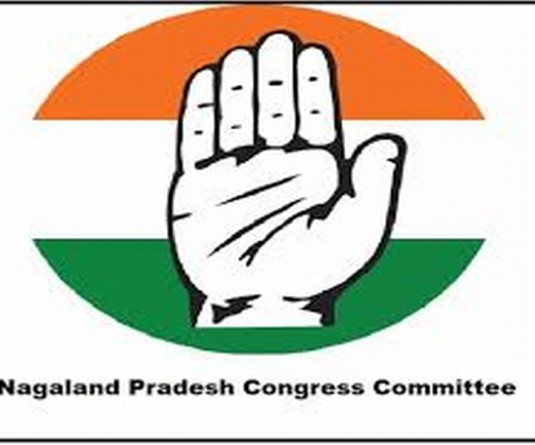A select consultative meeting to deliberate on child safety and role of community leaders in context of statutory and customary laws was held at the conference hall of the Deputy Commissioner, Dimapur on May 9.

DIMAPUR, MAY 9 (MExN): The urgent need for a juvenile rehabilitation centre in Dimapur and growing concern over child substance abuse dominated a select consultative meeting to deliberate on child safety and role of community leaders in context of statutory and customary laws was organized today at the conference hall of the Deputy Commissioner, Dimapur.
The meeting, organized by Prodigals’ Home in collaboration with office of the Deputy Commissioner and supported by DKA Austria, was attended by President and colleagues of GB (Sadar) Union Dimapur, President and colleagues of Dimapur Urban Council Chairman Federation (DUCCF), Chairperson/representatives of Child Welfare Committee, District Child Protection Unit, Child Helpline 1098, and Juvenile Justice Board, Dimapur.
Kholie Khapfo, President of the GB Union Dimapur (Sadar), highlighted the practical challenges faced by Gaon Buras (GBs) while handling sensitive child-related cases and underlined the underutilisation of Article 371(A) by the Naga community. He said that although Naga customary laws have their flaws, they also offer swifter and more humane justice in many cases, which are increasingly being sidelined by statutory laws.
Echoing similar concerns, Zasi Zakiesato, President of the Dimapur Urban Council Chairman Federation (DUCCF), drew attention to the easy availability of drugs such as “shan” and “sunflower” in the district, and the growing number of children falling prey to substance abuse at a young age. The meeting saw detailed deliberations on the urgent need for a rehabilitation centre for juveniles battling drug and alcohol dependence, with participants calling on the government to intervene and facilitate the establishment of such a facility.

Members of the GB Union and DUCCF jointly voiced their challenges in addressing juvenile delinquency within their respective jurisdictions. They also stressed the need to identify effective strategies to manage repeat offenders and sought guidance on balancing statutory laws with customary practices. The members were unanimous in their appeal for greater legal awareness on child rights and protection mechanisms, urging the government to initiate awareness campaigns at the colony and village levels.
The meeting also underscored the tension between statutory and customary laws in addressing juvenile delinquency. Community leaders expressed frustration over the increasing burden on local authorities, especially GBs and Council Chairpersons, who often serve as first responders to juvenile cases. They unanimously called for legal awareness drives on child protection laws in villages and colonies to empower communities and prevent offences.
During the discussion, Alomi Sumi, Coordinator of Child Helpline 1098, Dimapur, reported that the helpline registered 212 cases involving missing children, runaways, rape, assault, and related issues during April 2024–March 2025. She cautioned that many more cases likely go unreported, underlining the urgent need for stronger reporting and response mechanisms.
K Ela, Director of Prodigals’ Home, spoke on the broader concept of child safety and the importance of aligning statutory protections with customary responsibilities. She called for collaboration between traditional leaders and state mechanisms to protect children more effectively.
Clarifying various procedural doubts, Moamenla Yaden, Chairperson of the CWC Dimapur, detailed the role of the committee and reiterated its readiness to support children in need of care and protection.
The meeting, chaired by SDO (Civil), Dimapur, Wiridin, concluded without a final resolution, but participants agreed to expand the consultation by involving more stakeholders in future sessions. He also noted the complexities surrounding child adoption in Naga society and emphasised the importance of culturally sensitive legal frameworks. The aim, it was agreed, is to evolve a collaborative framework that integrates both customary and statutory practices in safeguarding children.






